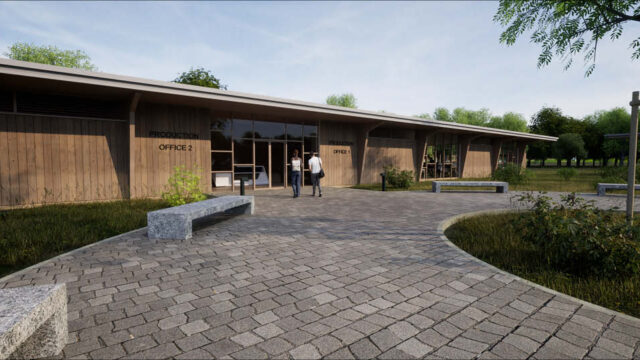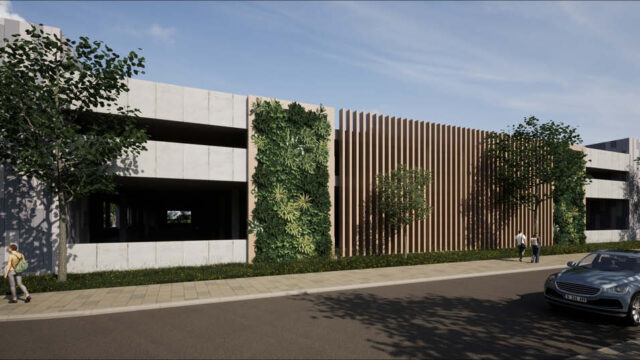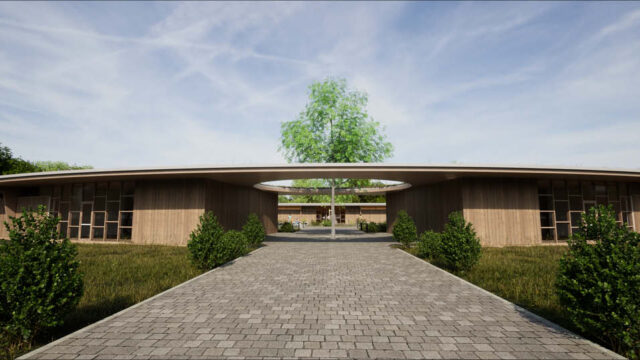Stage Fifty has submitted plans for a permanent eight-stage film studio complex in Buckinghamshire.
Buckinghamshire Council is expected to reach a decision in January 2023.
The detailed application sets out how Stage Fifty will turn the 26-acre site just off the M40 near High Wycombe into a “class-leading sustainable film studio, driving economic growth by delivering multi-million-pound investment to the region and creating hundreds of jobs.”

The plans include tree screening and green walls on the stage buildings to blend in with the tree line and soften the view for the studio’s neighbours in Claymoor Park. Specially designed cladding with faded grading will help the stages merge with the landscape and skyline.
Claymoor Park resident, Alan France, said: “The team at Stage Fifty have been really helpful and interested in being a good neighbour from the start of the project. They’ve taken our feedback on board and have tried to adjust their plan to meet our requests. This is a unique opportunity to bring a prestigious high-growth business and the jobs associated with it to land designated as a strategic employment area.”
James Enright, CEO of Stage Fifty, said: “We want to build a sustainable studio that the people of Wycombe are proud of, one that will create exciting new jobs for the community and generate around £305m GVA

“As soon as we have a decision from the council, everything can happen in a short timeframe as the design of our innovative sound stages means we can build quickly. Once the studio is fully operational, it will support around 750 full-time jobs and 450 indirect jobs in the supply chain. And we’ll develop the skills of young local people by offering traineeships and industry placements at Wycombe Film Studios through Stage Fifty’s Academy of Creative and Technical Arts (ACTA)
“Our goal is to build a studio that is not only sustainable in its construction but a place where people are excited to work in the heart of Buckinghamshire. Ultimately, we want Wycombe Film Studios to set the benchmark, attracting filmmakers from all over the world.”

Sustainability is “a key driver in the construction of the studios.” The sound stages are inherently environmentally friendly due to their almost fully recyclable nature, and the offices, café, amenity spaces, and gatehouse are designed to harmonise with the surroundings. The low-level buildings are clad in timber, have green roofs, and sit within native wildlife-friendly planting and grasses. Across the site, carbon has been designed out of the scheme to reduce the studio’s carbon footprint, and solar photovoltaic panels will be used where possible.
Jon Creamer
Share this story

















